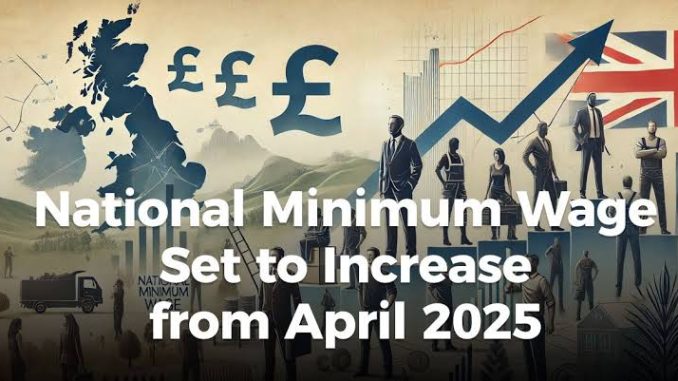
In a landmark decision that promises to reshape the financial landscape for millions of workers across the United Kingdom, the government has announced a significant 15% increase to the National Living Wage, set to take effect in 2025. This unprecedented rise comes amid ongoing discussions about living costs and economic recovery, as the nation grapples with inflationary pressures and the fallout from the pandemic.
The current National Living Wage, which stands at £10.42 per hour, will increase to approximately £12.00, offering much-needed relief to low-wage earners who have faced financial hardships over the past few years. The increase, hailed as a historic leap, is expected to benefit over two million workers, particularly in sectors like retail, hospitality, and social care, where wages have lagged behind the cost of living.
Chancellor of the Exchequer, in announcing the increase, emphasized the government’s commitment to ensuring that work pays and that all workers can meet their basic needs. “This substantial rise in the National Living Wage is a clear message that we value hard work and are dedicated to creating a fairer society,” he stated. “We recognize that many families are struggling, and this increase will provide them with the support they desperately need.”
Critics, however, have raised concerns about the potential impact on small businesses, which often operate on thin profit margins. The British Chambers of Commerce warned that while the wage increase is beneficial for workers, it could lead to higher operational costs for employers, particularly in sectors heavily reliant on minimum wage labor. They have called for additional support measures to help small businesses adjust to these changes.
Unions have largely welcomed the decision, viewing it as a necessary step towards addressing income inequality and improving living standards. “This increase is a victory for all workers,” said a spokesperson from the Trades Union Congress. “It’s essential that we continue to push for fair pay, especially as inflation continues to erode purchasing power.”
As the date approaches, discussions will likely intensify around the implications of this wage increase. Economists predict that the change could stimulate consumer spending, potentially aiding the broader economy. However, the effects on inflation and business operations remain to be seen, making this a pivotal moment for the UK’s labor market and economic recovery.
The government has pledged to monitor the impact closely and to engage with businesses and trade unions to ensure a smooth transition. As 2025 approaches, the country awaits the broader consequences of this monumental policy change.
Leave a Reply